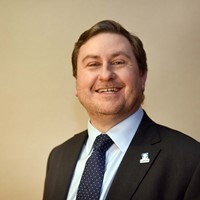What will such legislation mean to those of us who lead difficult lives, to people facing isolation and loneliness or to survivors of painful experiences? What will such a law mean for our physicians and other health professionals, families and carers?
I am conscious of those who face the prospect of their death every day and many who have had their lives ripped from them.
We hear stories about North Koreans who live in grim circumstances; we have learned about the plight of millions affected by floods in Bangladesh, Nepal and India; the conflict in parts of Iraq and Syria continues; famine still affects many in South Sudan and stories are emerging about the suffering of Rohingya people in Burma and Bangladesh.
Closer to home, through our work at Calvary, I am conscious of people who have difficult lives in our own community: the survivors of institutional sexual abuse who have been damaged by some of our leaders; our first peoples, people who live with isolation and loneliness; those with chronic illnesses; people fearful of growing old and women and men facing their own imminent death.
And for many, their grief and loss is not relieved by medicine, but rather through the solidarity of presence, the enterprise of research, imagination and grit, together with the multiple acts of service of those who give to those who have not. This is how we have assisted those who experience loss and grief and face their death every day – until now.
Few of us have been present with a person as they die. Many of us may not know what to do or how to be.
We are perhaps a little afraid of those who remind us of our vulnerability and mortality – the displaced, the homeless, the mentally ill, those living with dementia and the elderly.
Until now, however, we have not publicly contemplated eliminating this suffering by making it lawful for a person to take his/her life and for another over the age of 18 to assist.
Have we thought about the implications? What will be the impact on our common enterprise as human beings? On our efforts to build solidarity and on our claim that each one’s life is precious and matters, every moment of every day?
Until now a medical practitioner’s essential duty has been to protect life and do no harm. That will change if the law permits assisted suicide. The concerns voiced by doctors’ groups representing those who will be asked to administer the regime are legitimate. Such a law will drive divisions in the profession.
Others who work in our aged care sector worry about those who are lonely and depressed and who may take the momentous decision to seek an assisted death because of heartache or loneliness or because they feel a burden to their carers or children.
Then there is the process. How will people die? How is a person to take his/her own life? What substance would a person use? What are its side-effects and complications? What if the substance doesn’t work? If a doctor is called on to assist because a person can’t ingest a substance orally, what intravenous medications will the doctor use? What will be the effect of administering and watching such a procedure?
How are the vulnerable to be protected? How will authorities and doctors assess signs of risk factors such as coercion; abuse of persons who are dependent on the care of others; family violence; substance abuse; gambling addiction and mental health issues?
Who will be responsible for providing family support, counselling and conflict mediation, bereavement counselling for people choosing voluntary assisted dying and those it affects?
Laws affirm what we value. They reflect to the community the ideals, attitudes and behaviours the community holds as precious.
Sometimes the law limits an individual’s actions, not to harm or hinder or to devalue personal experience, but to protect others in the community and ourselves. When I am particularly vulnerable, the only protection left may be the boundaries set by law and our justice system – institutions which will speak for me because I cannot.
The common good, rather than what is good in the eyes of a particular individual or group of individuals, determines our law. If together we cannot answer major questions about the implications of the voluntary assisted dying legislation, such law is not in the interests of the common good.























































































